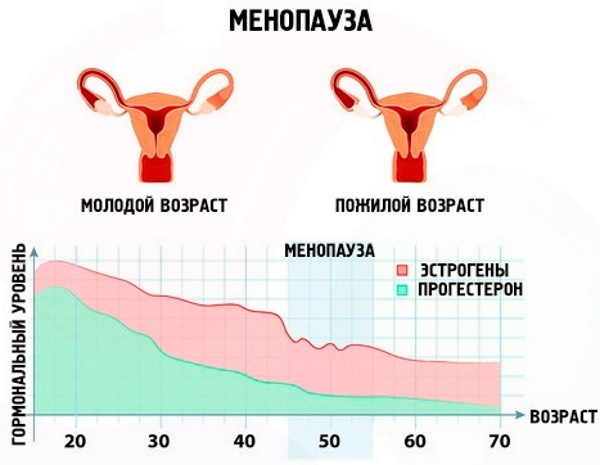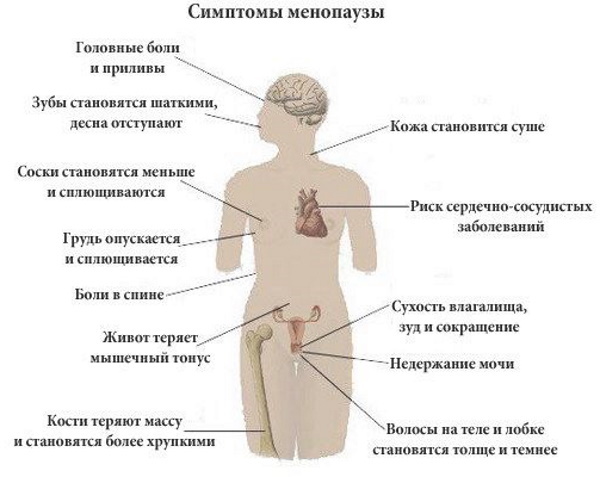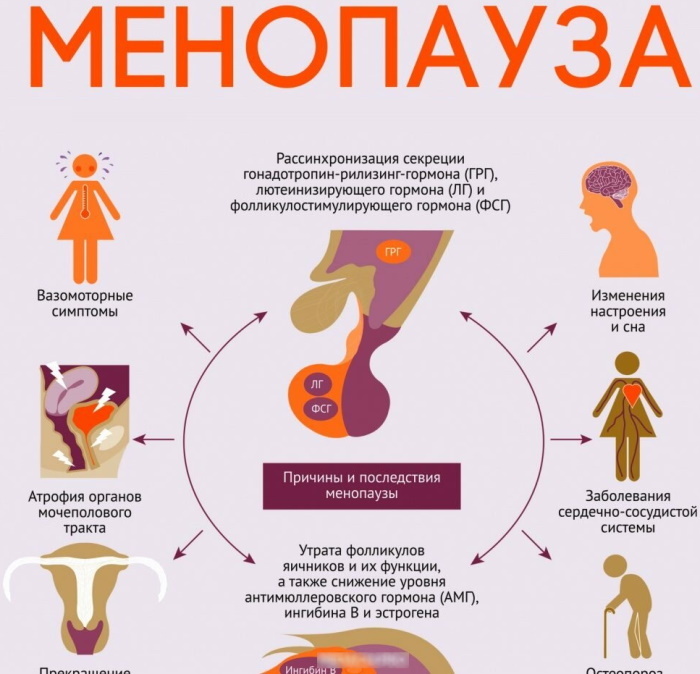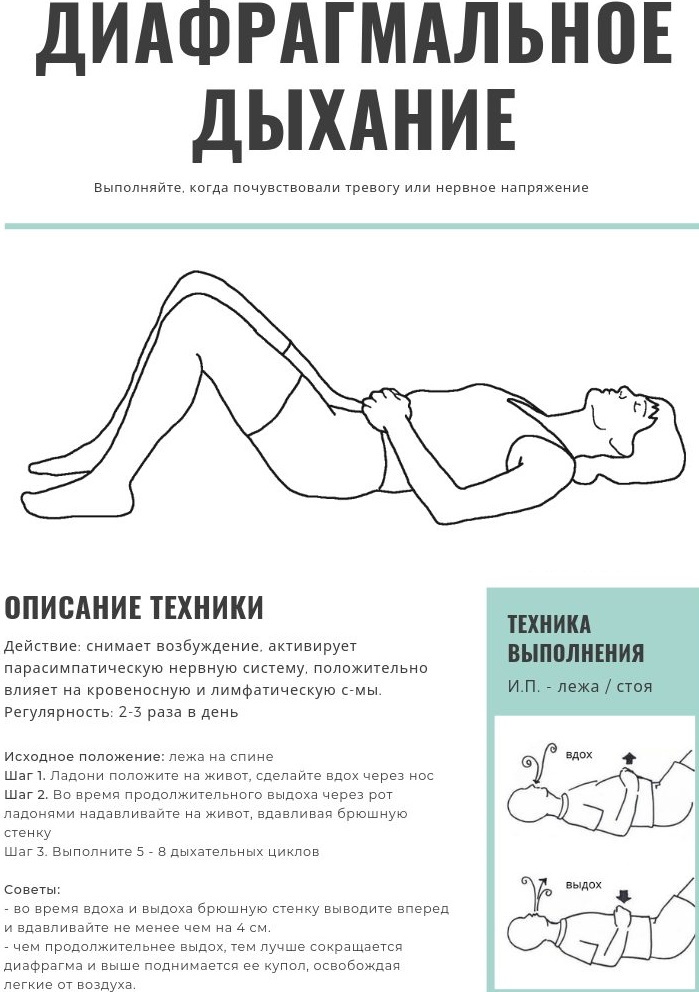Content
- Types and stages of menopause
- Premenopause
- Menopause
- Perimenopause
- Postmenopause
- Physiological
- Artificial or induced
- The timing of the onset of menopause
- When does menopause occur?
- The first signs of "normal menopause"
- What happens to menstruation before menopause?
- The first signs of early menopause
- Causes of abnormally late menopause
- How long does the climax last
- Menopause Videos
Climax - translated meaning "step down" - a normal physiological process that begins in women during the period of extinction of the functions of the ovaries, and accompanied by the appearance of cyclical hormonal fluctuations, changes in the menstrual period and the disappearance of ovulation.
Types and stages of menopause
The end of the time allotted by nature for bearing and giving birth to children is considered the end of reproductive age, starting with the moment of the last menstruation and accompanied by unpleasant climacteric symptoms caused by a lack of genital hormones. The period that a woman goes through, entering the time of menopause, is divided into 3 stages:
Premenopause
The time interval characterized by menstrual irregularities and most often occurs at the age of 47-48 years. During this period, which takes about 3 years in duration, the female ovaries are still capable of produce eggs, but there is a sharp reduction in the duration and abundance of menstrual discharge. In addition, it is at this time that the first irreversible processes occur in the body, affecting the nervous and cardiovascular systems, as well as the musculoskeletal system.
During the observed deviations from the norm associated with a decrease in the level of estrogen, it is possible to start on time hormone replacement therapy, which can make the transition to menopause smoother or even delay it as much as possible offensive.
Menopause
Comes at the end of the last menstruation and continues for 2 years after it. During this period, the ovaries are already beginning to age and cannot work fully, but they still retain their main function, giving a chance for a sudden pregnancy. The most common age for menopause is 49-55 years.
Perimenopause
Combines the premenopausal period and the year after the last menstrual bleeding ended.
Postmenopause
A period of 6 years or more, characterized by a complete cessation of the functioning of the ovaries and beginning after 55 years.
Distinguish:
- Timely menopause. It starts at the age of 48-50 and ends before reaching the age of 60.
- Premature menopause, diagnosed at the age of 36-40 years and considered reversible in the case of hormone therapy.
- Early menopause, occurring at the age of 41-43 years and accompanied by the complete completion of menstrual bleeding before reaching 45 years.
- Late menopause, which occurs at the age of over 55 years.
The following menopause also stands out:
Physiological
Begins without provoking its causes and external influences.
The age of its onset is always individual, but may depend on:
- cigarettes and alcohol abuse;
- metabolic disorders;
- low physical activity;
- constant stress;
- high blood glucose levels or other chronic pathologies;
- hypovitaminosis.
The main reason that determines the moment of the onset of menopause is a genetic predisposition.
Artificial or induced
Cessation of menstrual bleeding caused by removal of organs of the reproductive system, chemotherapy or radiotherapy. Such a situation can arise at absolutely any age and is accompanied by a difficult recovery period.
The timing of the onset of menopause
Menopause begins in women most often at the age of 47-48 years, but it is almost impossible to predict the exact time of its appearance.

Despite a number of studies, doctors have not been able to give an exact answer - on what exactly the term depends fertility of a woman, but with the help of long-term observations, they came to the conclusion that at the time of the onset of menopause affect:
- Hereditary reasons. If the representatives of the older generation of the family had a history of the development of late menopause, the likelihood of a recurrence of the pathology in their daughters and granddaughters is high. According to studies, the onset of menopause in sisters varies slightly, but in twins, the difference can be 3-5 years. The reasons for this striking difference have not yet been found.
- Social conditions of life. Harsh living conditions and poor nutrition negatively affect women's health, leading to early aging of the body. Also, early termination of fertility is typical for women engaged in hard physical labor.
- Past illnesses. Severe chronic pathologies that cause metabolic disorders lead to early aging of the body. So among the factors that provoke early or premature menopause include: diabetes mellitus, obesity, atherosclerosis.
- Psychological factor. Women who live in happy and harmonious marriages, according to studies, are less at risk of early menopause than their less fortunate counterparts. Constant stressful situations can also contribute to early termination of fertility.
- Bad ecology. Air and water contaminated with heavy metals, as well as gas pollution of the environment, negatively affect the state of the endocrine system, gradually leading to its destruction.
When does menopause occur?
Menopause begins with the depletion of the ovaries, accompanied by the process of their complete extinction, and lasts about 7-10 years, ending by the age of 60. Despite the fears of most women, doctors are of the opinion that menopause is not a disease, but its approximation can be determined by a number of specific symptoms, confirmed by the results of laboratory diagnostics.
Depending on the type of manifestation, all symptoms of menopause can be divided into:
| View | Description |
| External. | In fact, tangible manifestations, accompanied by:
|
| Interior. | Imperceptible to others, but associated with a sharp lack of estrogen, they lead to disruption of the work of all vital organs and systems:
|
The first signs of "normal menopause"
The first and main sign of near menopause is the instability of menstruation. In conditions of an unstable environmental situation, constant stress and malnutrition, most women often do not pay attention to the frequency of menstrual bleeding, but in addition to frequent "delays" should be alerted and suddenly appeared feeling unwell, as well as exacerbation of premenstrual syndrome, accompanied by depression, melancholy and swings mood.
The level of the FSH hormone, studied on the 6th day of the cycle and giving a clear idea of the onset or absence of premenopausal changes, will help to determine the onset of menopause at this stage.
In addition, the onset of menopause is manifested:
- The tides. Sudden attacks of heat that rises from the chest to the face and neck several times a day and causes the skin to become covered with red spots.
- Sweating that occurs at the time of hot flashes.
- The fragility of bones. The lack of calcium in the body is associated with its poor absorption and provokes a sudden tendency to fractures that occur even with a slight external influence.
- A change in appearance caused by insufficient production of collagen by the body, leading to the appearance of age-related changes.
- Prolonged weakness associated with hormonal instability and increasing drowsiness.
- Emotional instability. Another most pronounced symptom of menopause is associated with sudden bouts of irritability, emotional instability and hysteria, which are suddenly replaced by periods of apathy and depression.
- A change in the perception of the surrounding world, accompanied by a violation or vice versa, an exacerbation of the sense of smell and a change in taste preferences.
- Insomnia. Heavy falling asleep and frequent awakening at night lead to sleep disturbance and cause poor health, apathy and irritability.
- Physical discomfort. Increased headaches are accompanied by a feeling of nausea, as well as increased heart rate and shortness of breath.
- Sexual problems. A decrease in the amount of sex hormones leads to problems with the production of vaginal secretions, which cause painful sensations during intercourse. There is also a decrease in sex drive, increased frequency and discomfort when urinating. Prolapse or prolapse of the uterus may also appear.
These symptoms are not fully manifested in all women and can be more or less pronounced.
What happens to menstruation before menopause?
Menopause in a woman always begins with menstrual irregularities. Since monthly bleeding is regulated by the production and sequential change of sex hormones, then when they decrease there is a gradual decrease in the duration and severity of bleeding, ending with a complete cessation of functioning ovaries.
Menopause with menopause can be absent for several months, and then go every 2 weeks. The nature of bleeding also changes.
It is noted:
- The appearance of scanty periods. This pathology occurs most often, and together with a decrease in the number of secretions, an increase in the gap between them is noted. Doctors advise not to confuse such a pathology with smearing secretions accompanying inflammatory gynecological and endocrine pathologies and which can occur at any age. Also, during menopause, the appearance of bloody discharge after intercourse can be observed.
- Prolonged periods with menopause are caused by the extinction of ovarian function and the cessation of ovulation. A change in the hormonal background provokes problems with the maturation of the egg and its release, and when it does appear, the subsequent menstruation can last much more than 7 days.
In addition to the changed menstruation during menopause, a woman may be disturbed by uterine bleeding of various etymologies, which is not considered the norm.
In this case, the appearance of blood clots from the vagina is accompanied by:
- pain in the abdomen and lower back;
- the presence of clots in the secretions;
- temperature increase;
- painful urination;
- nausea and vomiting;
- change in blood pressure.
The first signs of early menopause
Menopause occurs no earlier than reaching the age of 46 years, and in the case of its earlier arrival, we should talk about the appearance of premature or early menopause. In this case, for physiological or external reasons, as well as due to any diseases early extinction of ovarian function occurs, leading to premature aging of the body and termination fertility.
The onset of early menopause is associated with a decrease in the amount of estrogen and progesterone in the woman's blood, disrupting the process of follicle maturation and leading to a gradual decrease in menstrual bleeding.
Among the reasons provoking pathology:
- Heredity, indicating the presence in the family of an older woman who has experienced an early menopause.
- Early puberty, in which a girl's first menstruation occurs at the age of 8-10, which provokes a change in the concentration of sex hormones, subsequently leading to early aging ovaries.
- Surgical amputation of the pelvic organs (uterus, ovaries or parts thereof) due to the occurrence of benign or malignant neoplasms, ectopic pregnancy, rupture of cysts.
- General thinning of the body associated with anorexia, chronic malnutrition, being in constant stress.
- Chemotherapy or radiotherapy, destructive not only on atypical neoplasms, but also on the reproductive system.
- Nicotine addiction associated with the consumption of at least 5 cigarettes a day.
Symptoms associated with the onset of premature menopause can be divided into 3 groups:
| 1 | 2 | 3 |
|
|
|
The third group by doctors refers not only to the signs, but also to the consequences of an early decrease in production estrogens and progesterones, which can also cause mental disorders and prolonged depression.
Causes of abnormally late menopause
Menopause begins in women over the age of 55 in about 5% of all cases and is associated with long-term preservation of reproductive abilities due to the preservation of a high level of sexual hormones.
Doctors cannot give an unambiguous description of such a long-term fertility, noting only that it can not only slow down aging, but also cause an abnormal amount of estrogen that can provoke the development of hormone-dependent neoplasms.
Among the causes of late menopause are:
- hereditary predisposition;
- treatment at a young age of oncological diseases of different locations by methods of radiation therapy;
- the presence in the body of estrogen-dependent tumors that independently produce estrogen.
The symptoms of late menopause guidance are exactly the same as in early or normal menopause, but can be much more pronounced and cause a lot of inconvenience to the woman.
It is also noted:
- changes in the menstrual cycle with lengthening of the interval between bleeding and their intensity;
- the appearance of chills and heat, arising in the chest and slowly rising to the face and neck, causing the skin to become covered with red spots;
- symptoms indicating changes in the psycho-emotional state of a woman, such as increased irritability, depression, or vice versa, aggression;
- fast and severe fatigue, occurring against the background of problems with falling asleep;
- sudden exacerbation of deep wrinkles, brittle hair and nails.
If the onset of late menopause does not have serious pathologies, it has a beneficial effect on the appearance and well-being of a woman:
- allowing her to look much younger than her peers;
- preventing the development of osteoporosis and cardiovascular pathologies;
- keeping her emotional stability and well-being;
- allowing, as before, to fully enjoy sexual relations.
Also, with late menopause, a woman's fertility is maintained for a long time, giving her the opportunity to become a mother at a more conscious age.
In addition to positive reasons, the onset of late menopause can be the reason that a woman is simply will not notice the development of dangerous oncological pathologies that take place in the early stages practically asymptomatic.
How long does the climax last
Menopause on average in women lasts about 3-5 years and begins at the age of 46-54 years. During this period, the ovaries gradually lose their ability to reproduce eggs, but since the extinction of fertility occurs gradually, persisting for a year after the last menstruation, a woman should be aware of contraceptive methods and the likely risk of pregnancy.
More often menopause begins after only 46 years of age and takes an average of 3-5 years, being considered the final stage of female reproductive function. Menopause associated with hereditary, pathological or external causes may occur at an earlier or later age, but always accompanied by pronounced unpleasant menopausal symptoms that cause discomfort and require special attention to their the body.
Menopause Videos
What time does menopause begin, what should a woman do:



